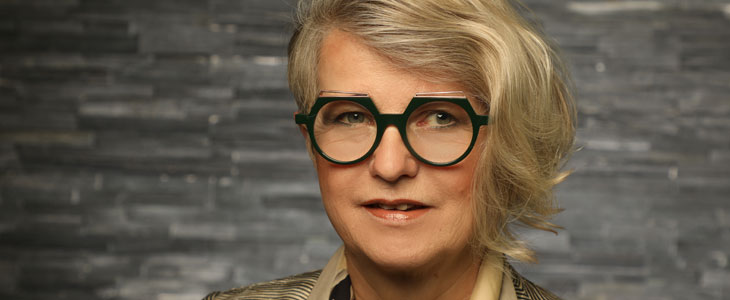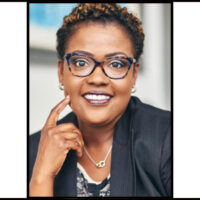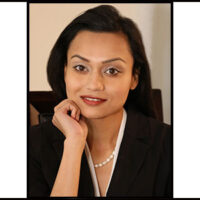
ACAMS Today chatted with Patricia Kordesch, CAMS, on using her voice against workplace inequality and paving the way toward equal opportunities. Kordesch started her career as private banker, managing client relationships in Germany and Asia, driving business development, service culture and know your customer practices in Deutsche Bank Group. Later, as audit director, executive leadership became her new clientele; audit reports and consulting engagements became her tools for change. She led teams and projects from operations to risk management across Europe and the global financial hubs. As part of her risk portfolio, she directed the bank’s global anti-money laundering (AML) audit strategy and coverage. Then, she became the APAC head of operational risk and private wealth.
From there, Kordesch moved to the U.S.-based leader in integrated resorts as head of audit, Marina Bay Sands in Singapore. She also joined the ACAMS Singapore Chapter Board. Now, she is head of the analyses department within the Germany’s Financial Intelligence Unit.
Kordesch has been an ACAMS member and CAMS-certified since 2007, complemented by certifications in compliance, ethics, internal audit and risk management, with consulting being the focal point of her diverse management roles and initiatives.
ACAMS Today: What led you to a career in anti-financial crime (AFC)?
Patricia Kordesch: My career in AFC started with my choice to challenge myself professionally. I decided to change from being a private banker to becoming an internal audit leader at a global financial institution. Some years down the road, management wanted AML audit coverage to be redesigned and I seized the opportunity. Since then, I have been highly engaged with AFC, compliance and risk across multiple industries and jurisdictions.
AT: The International Women’s Day theme this year is “choose to challenge.” How do you choose to challenge inequality in the workplace?
PK: Equality is a universal value. In the corporate world, inequality often encompasses quantifiable aspects such as salary, the “gender pay gap” (in the European Union it is 14.1% ),1 and women’s representation in hierarchies or positions of authority. I use my voice when such inequalities surface and engage in discussions with involved parties. In my experience, transparency around the facts provides the avenue to agree on solutions and drive change.
The more subtle aspects (such as equal opportunities, equal access to information or equal exposure to senior leadership) are the success factors to achieve equality in career progression. A comprehensive approach is needed to address such shortcomings and to disrupt unconscious bias toward women. Everyone—women and men alike—has the power to do just that, power that comes with and is limited by the professional role.
I choose to challenge by proactively presenting solutions that include women, as well as promoting women’s contributions. I always work to live up to the expectations female colleagues expect from their leaders.
AT: What can the AFC industry do to provide equal opportunities for women?
PK: Call for more collaborative efforts from women and men to advance equality.
An ACAMS Today cover from 2014 once decorated my office wall. The headline read “Women in AML: A beacon to the community” and the cover art depicted a woman at the bottom of a steep set of stairs, yet to be climbed, looking into a future symbolized by a ray of light from somewhere above. The cover elicited a range of reactions from my male coworkers: discomfort, smiles and disbelief.
Seven years later—what has been achieved? Women have proven to be capable, motivated and talented in the fight against financial crime. Yet, executive leadership is still mostly dominated by men. The following are some basic steps that could pave the way toward equal opportunities:
- Celebrate women’s achievements in AFC thought leadership, in training, in fighting financial crimes and in promoting women in the industry—not just on International Women’s Day. Have female role models set the tone from the top and encourage other women to follow.
- Showcase a corporate equality strategy. In general, international institutions and organizations within the AFC industry understand the positive impact of gender diversity on revenue and thus postulate parity for their executive leadership and boards. This objective is often marketed as a key strategic project. However, is it effectively managed as such, based on a project plan with achievable quotas and timelines as milestones, the approval by the board, regular key performance indicators (KPIs) and management reporting on progress (or lack thereof) internally? Is the corporate AFC world prepared to regularly inform the public on progress as the ultimate proof of commitment to gender equality?
- Improve performance objectives for individuals beyond any AFC-related KPIs to include objectives for the promotion of women and for inclusiveness. Whether female representation in women-led teams, male mentorship for women or male ambassadors for women equality—the success of such initiatives should be measured using KPIs.
- Enrich AFC training to build awareness for potential unconscious bias toward women and train effective ways to overcome it. Train women to build confidence and resilience specific to professional challenges in the AFC industry.
AT: How have you made a difference or inspired other women in the AML industry?
PK: Women supporting women in a professional setting is incredibly valuable, but rare.
That, for me, has been an eye-opener and motivation to make a difference. In my leadership roles, I have been creating ecosystems that support talented women. I provide them with assignments and opportunities to excel, offer coaching as needed and promote news about their achievements.
Their success stories, my work with friends and peers and the imperative to fight the adverse effects of financial crime are my source of inspiration.
AT: Tell us about a memorable moment in your career.
PK: I once attended a professional women-only event with more than 200 invitees in the reception hall. The lights were turned down and the CEO keynote speaker arrived on stage and kicked off as usual: “Ladies and gentlemen….” Laughter broke out, as he was the only man in the room, except for some technicians.
Years later, I found myself in a similar situation. I attended a roundtable event with roughly 20 representatives from regulators, audit firms and the private sector. The leader kicked-off his speech, “Ladies and gentlemen….” Again, there was laughter, as there was only one woman at the table.
Why do I share these out of so many moments in a career spanning over 25 years? On both occasions, men and women felt uncomfortable. We all sensed that the imbalance was wrong and serious and not funny at all. I strongly believe in having future events with balanced gender participation and where all voices can be heard.
AT: Do you have a favorite quote or words of wisdom to share with our readership?
PK: Dame Zaha Hadid, renowned architect, artist and designer said, “I really believe in the idea of the future.”
I, too, believe in a future of equal opportunities, where women are reaching the top of the stairs, where women and men choose to challenge inequality and where all choose to challenge effectiveness in the fight against financial crime.
Interviewed by: ACAMS Today staff, ACAMS, Miami, FL, USA, editor@acams.org
- “The gender pay gap situation in the EU,” European Commission, https://ec.europa.eu/info/policies/justice-and-fundamental-rights/gender-equality/equal-pay/gender-pay-gap-situation-eu_en










